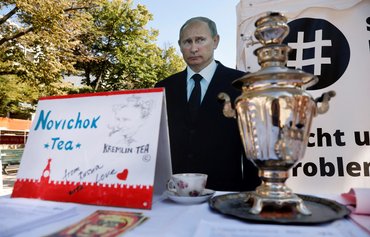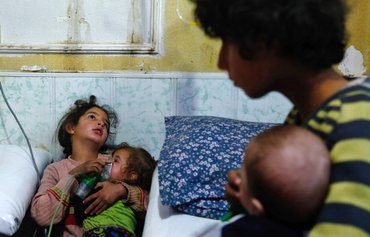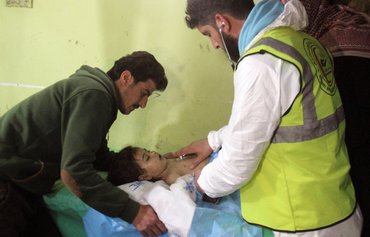Syria and Russia faced renewed pressure over allegations of chemical weapons use as member countries of the global chemical weapons watchdog met on Monday (November 30th).
The meeting coincided with the annual Day of Remembrance for All Victims of Chemical Warfare.
"The shadow cast by chemical weapons has claimed countless victims, both civilians and soldiers across the globe," the Organisation for the Prohibition of Chemical Weapons (OPCW) said in a social media post.
In a message commemorating the occasion, UN Secretary-General António Guterres said the use of such weapons anywhere, by anyone, under any circumstances, "is intolerable and a serious violation of international law".
"There can be no justification for the use of these abhorrent weapons," he said. "We must remain united and determined in preventing their use, or the threat of their use. We cannot allow ourselves to become inured."
He also underscored that impunity for use of chemical weapons is unacceptable.
"It is imperative that those who use, or have used, chemical weapons are identified and held accountable. That is the only way to meet our moral responsibility to the victims of chemical warfare," he added.
Calls for sanctions on Syrian regime
At Monday's meeting of OPCW member countries, Russia was urged to "transparently" reveal the circumstances of the Novichok nerve agent poisoning of opposition figure Alexei Navalny in August.
The Syrian regime meanwhile faced calls for sanctions at the OPCW after investigators accused it of sarin attacks in 2017.
Russia and Syria have repeatedly denied the accusations.
Syria had failed to meet a 90-day deadline set in July to declare the weapons used in the attacks on the village of al-Lataminah and to reveal its remaining stocks, OPCW chief Fernando Arias said.
"The Syrian Arab Republic has not completed any of the measures," Arias said.
He said "gaps, inconsistencies and discrepancies" remained in the Syrian regime's account of its progress on its 2013 agreement to give up all chemical weapons following a suspected sarin attack that killed 1,400 people in Ghouta.
France proposed that the OPCW should "suspend the rights and privileges" of Syria for failing to meet the deadline, French ambassador Luis Vassy said, adding that the proposal was backed by 43 states.
These would include Syria's voting rights in the OPCW, depriving it of a voice at a body where it has been deflecting allegations of toxic arms use for years.
Russia under pressure at OPCW
Russia meanwhile came under pressure over the poisoning of Navalny, which the politician and Western governments have blamed on the Kremlin.
The OPCW has confirmed traces of the Soviet-era nerve agent Novichok in samples taken from Navalny in hospital in Germany, where he is recovering.
Arias said the OPCW was still in talks with Russia to send a fact-finding team there to investigate the incident, he said.
In a joint statement, 55 countries including the US, Japan, Canada, Australia and many in Europe said they "condemn in the strongest possible terms" the attack on Navalny.
They urged Russia "to assist... by disclosing in a swift and transparent manner the circumstances of this chemical weapons attack" on Russian territory.
The OPCW has 193 member states and won the Nobel Peace Prize in 2013 for its work in destroying the world's stocks of chemical weapons.

![A Syrian man shows remnants of rockets reportedly fired by regime forces on the besieged town of Douma in Eastern Ghouta on January 22nd, 2018. The regime has been repeatedly accused by UN investigators of using chlorine gas or sarin gas in sometimes lethal chemical attacks. [Hasan Mohamed/AFP]](/cnmi_di/images/2020/11/30/27256-Syria-sarin-gas-600_384.jpg)






